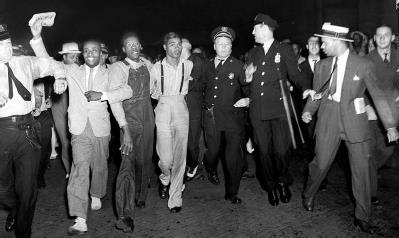The Hughes Court (1930–41)Criminal Justice |
In what case did the Hughes Court first invalidate coerced confessions? |
The Hughes Court ruled unanimously in Brown v. Mississippi (1936) that the murder convictions of three African American men had to be reversed due to the nature of their confessions. Law enforcement officials in Kemper County, Mississippi, dragged one defendant, Yank Ellington, out of his bed and hung him from a tree twice before releasing him. They seized him a couple days later, drove him to Alabama, and beat a confession out of him. A deputy sheriff arrested two other defendants, Ed Brown and Henry Shields, and whipped them with leather straps until they confessed to participating in the murder.
The Hughes Court ruled that these coerced confessions could not withstand constitutional scrutiny, as the defendants only confessed for fear of being beaten to death. “The rack and torture chamber may not be substituted for the witness stand,” Hughes wrote. “The state may not permit an accused to be hurried to conviction under mob domination—where the whole proceeding is but a mask—without supplying corrective process.” The Court concluded that such coerced confessions were “a clear denial of due process.”

